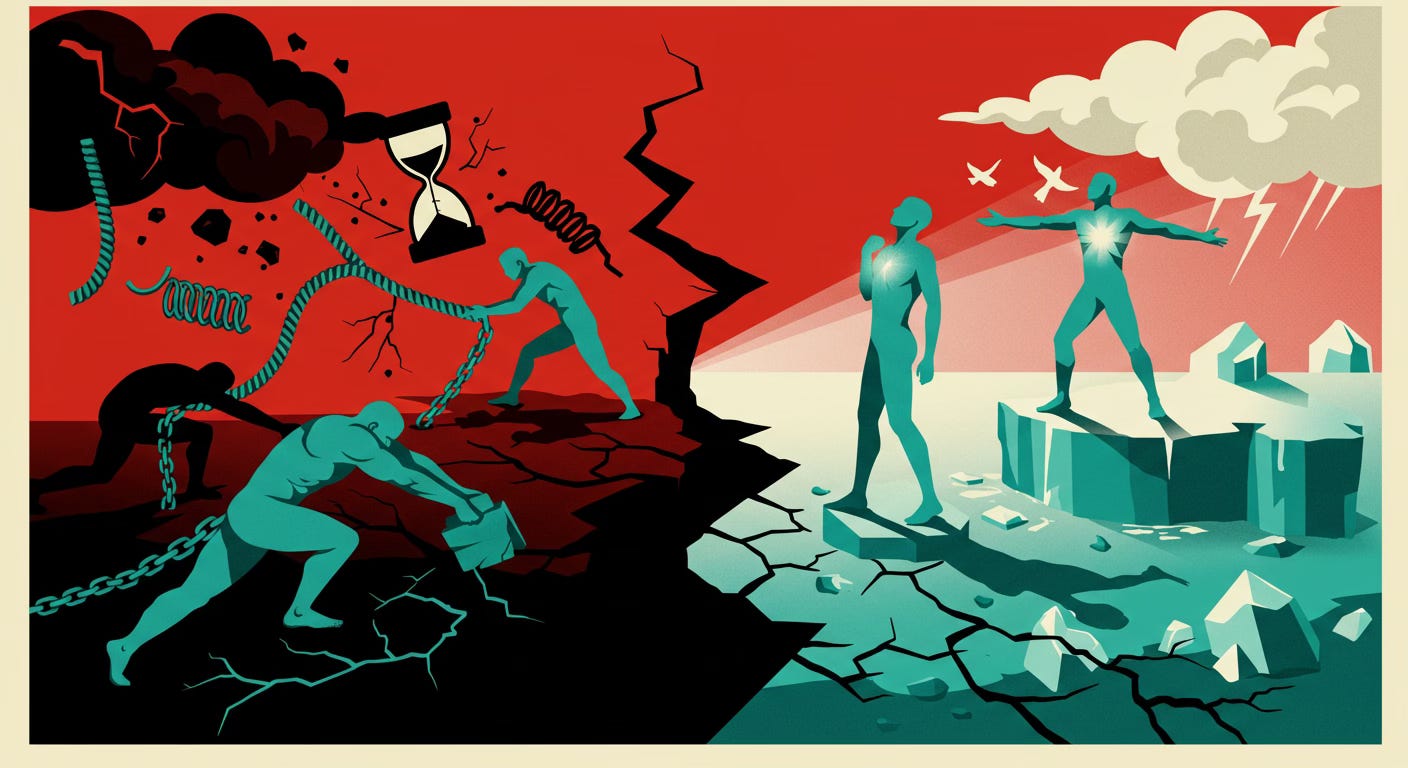Human beings are naturally inclined to oppose suffering. When confronted with adversity — whether personal failure, emotional loss, or professional setback — our instinctive reaction is resistance. We deny, suppress, or mentally fight what we perceive as injustice or misfortune. While this response might offer short-term psychological shelter, in the long run, it often leads to a prolonged entanglement with the very pain we wish to escape. As Carl Jung insightfully said, "What you resist persists, what you accept transforms." This quote is not merely philosophical—it reflects a deep psychological truth about the way our subconscious processes lived experience.
To understand why resistance causes persistence, one must look into how memory and emotional response interlace. When we resist a painful experience, we are, in effect, rehearsing it mentally, reinforcing its imprint in our subconscious. Every time we replay the moment, reject it, or dwell on its injustice, we deepen its psychological presence. It is not the event itself that continues to haunt us, but our continued emotional investment in rejecting it. Like a shadow, what we refuse to face simply follows us more closely.
Take the example of someone who has been laid off from a job. If that person continually dwells on how unfair the decision was, how unrecognized their contributions were, and how others were less deserving, then months later, they may still feel emotionally anchored to that moment. Their bitterness can become a defining feature of their identity. On the other hand, someone who accepts the job loss as a fact—not necessarily as something just or right—but as something real and irreversible, is emotionally freer. Their mind is already shifting towards the future: networking, upskilling, or even rethinking their career path.
This is not to suggest that acceptance is passivity or complacency. Active acceptance is a conscious posture of psychological openness. It is the decision to say: “This happened. It was painful. But I will not let it define me. I will learn from it, and shape what comes next.” In this light, acceptance becomes a catalyst. By not wasting energy in mental resistance, we can redirect that energy toward action, healing, and creation. Resistance wastes energy. Acceptance redirects it.
Emotional relationships provide another fertile ground for this reflection. Consider someone who has gone through a breakup. Resistance might manifest as obsessive thoughts, constant comparisons, or the mental rewriting of the past to figure out “what went wrong.” This resistance keeps the emotional wound raw. Conversely, those who accept that the relationship ended—without needing to label it as “good” or “bad,” or pin blame—tend to heal faster. Acceptance, in such cases, is an emotional detox: it purifies the mind of the toxins of resentment and illusion.
Our resistance often stems from a subconscious need to control the narrative of our lives. We want events to unfold according to our expectations, and when they don’t, we perceive this deviation as failure. But life rarely conforms to our pre-written scripts. Acceptance, then, is not just about yielding to fate; it is about aligning with reality so that we can write a new script with the pieces we have left. Paradoxically, we gain greater control over our lives not by resisting what happens, but by accepting it and building anew.
Physical health offers another clear example. When a person receives a chronic illness diagnosis, denial and resistance are common first responses. “This can’t be happening to me,” they say. But often, this resistance delays treatment, exacerbates mental health challenges, and feeds anxiety. Patients who accept their condition—while still committed to managing or even reversing it—tend to report higher well-being, greater resilience, and a better prognosis. It is not the disease alone that defines the quality of life, but one’s response to it.
Children and athletes, interestingly, show this lesson in motion. A child who falls while learning to ride a bicycle does not typically ruminate for days about the fall. They accept it as part of the process and try again. Similarly, a tennis player who resists the memory of a missed shot or an unforced error is more likely to repeat it, their mind clouded by fear or frustration. Those who acknowledge the mistake, reset their mindset, and refocus are the ones who adapt and win. Performance, here, is a function of how quickly one accepts imperfection and moves forward.
It is worth noting that resistance is not entirely bad—it reflects our values, our longing for justice, or our refusal to be passive victims. But when resistance becomes the default lens through which we interpret pain, we forfeit our agency. We become stuck in the role of the aggrieved, unable to change the narrative. Acceptance, in contrast, is the beginning of authorship. We stop being characters in someone else’s plot and begin to shape our own story.
Some spiritual traditions express this truth in metaphors. Buddhist teachings, for instance, often compare suffering to being hit by two arrows. The first arrow is the pain caused by an external event. The second arrow is our reaction—our mental resistance, our refusal to let go—which intensifies the suffering. Acceptance, then, is refusing to shoot ourselves with the second arrow.
This philosophy doesn’t ask us to suppress emotion. On the contrary, it asks us to observe it, feel it, and then transcend it—not through denial, but through acknowledgement. Acceptance is emotional maturity. It’s not the end of pain, but it is the end of its domination over us.
In closing, resistance is seductive because it feels like action—it feels like control. But true transformation begins with the quiet strength of acceptance. Jung was right: “What you resist persists, what you accept transforms.” If we want to transform our lives, we must begin not with battle, but with acknowledgement. Only then can we move from being prisoners of circumstance to architects of renewal.

